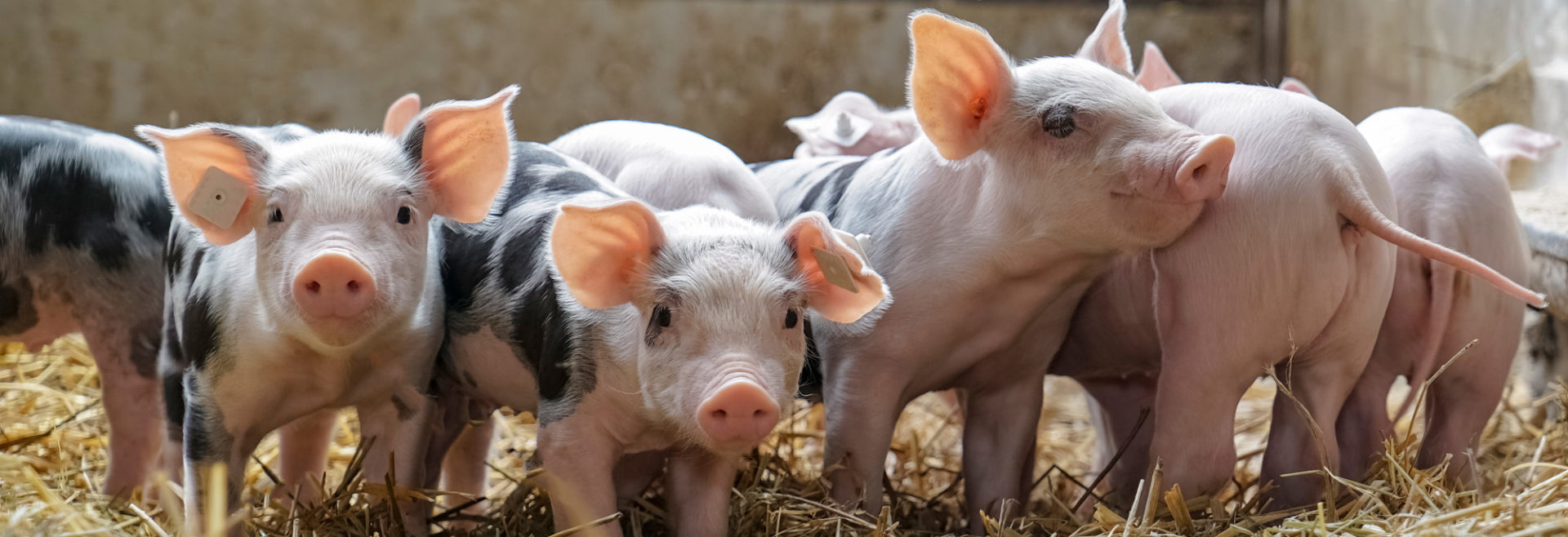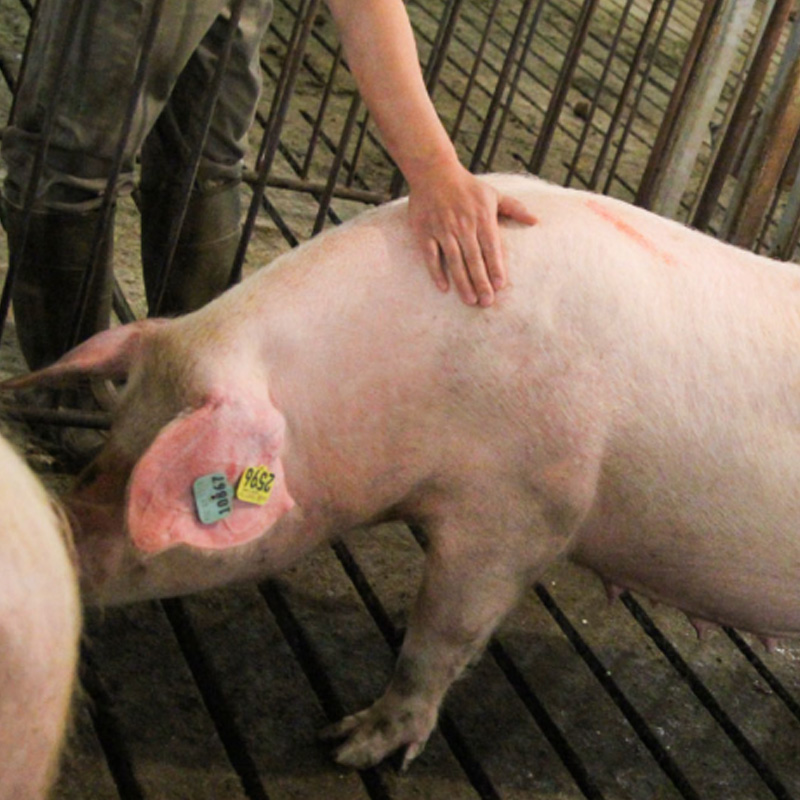| AGR 150 |
Agriculture and Consumer-Related Occupations I |
Details |
1 |
| An introduction to various agricultural occupations, this course involves a study of career opportunities in agriculture industry, business, farming, teaching, resource management and environmental control. It is designed to gather occupational information which will allow the student to develop educational and occupational goals. Satisfies JWCC job-seeking skills course requirement. |
| Prerequisites: |
(none) |
|
| AGR 161 |
Animal Evaluation and Selection I |
Details |
3 |
| Study of relationship between form and function in the evaluation and selection of breeding and market livestock. 0.5 lecture hours, 5 lab hours. |
| Prerequisites: |
(none) |
| Locations: |
Available at the Agricultural Education Center (Baylis) |
|
| AGR 180 |
Swine Management |
Details |
2 |
| Covers factors used to select and manage a breeding herd. Emphasis on the skills and practices necessary for maximizing reproductive performance in confinement. The course includes choosing replacement females, selecting boars, cross breeding, artificial insemination, pen and hand breeding, genetics, wean to finish, management, and carcass evaluation. Covers the science and reasoning behind the application of the above topics. |
| Prerequisites: |
(none) |
| Locations: |
Available at the Agricultural Education Center (Baylis) Only offered during the spring semester of odd years |
|
| AGR 202 |
Introduction to Animal Science |
Details |
4 |
| A basic course in the principles of livestock production and management, including breed identification, evaluation and selection, feeding, reproduction, sanitation, disease control, and physiology of beef cattle, dairy cattle, swine, sheep and poultry. 3 lecture hours, 2 lab hours; IAI: AG 902 |
| Prerequisites: |
(none) |
|
| FYE 101 |
Blazing Your Trail |
Details |
1 |
| Directed to new students, this course provides a supportive transition to the culture of higher education. Course objectives aim at preparing students for the college experience by acquiring effective learning techniques and by becoming aware of available college resources for academic and personal growth. This course also develops students' abilities, which will assist them with the complexities of college life. |
| Prerequisites: |
(none) |
|
| Various |
Approved Electives (Swine Specialist Certificate) (2-4) |
Details |
2-4 |
| Approved electives for the Swine Specialist Certificate. |
| AGR 152 |
Natural Resource Management |
Details |
3 |
| Basic course emphasizing the importance and practical aspects of planning a conservation program for the agriculture producer. The student will study and develop a conservation plan for his or her own farm or a farm provided by the instructor. In-depth study of conservation practices and their economic considerations will provide the student with a better understanding of the need to plan the use, treatment and protection of soil, water, air, woodlands, wildlife, and energy use. |
| Prerequisites: |
(none) |
| Locations: |
Available at the Agricultural Education Center (Baylis) |
|
| AGR 184 |
Agriculture Commodity Marketing |
Details |
2 |
| A basic and practical approach to the understanding and use of futures and options will be covered. Topics of discussion will include the Chicago Board of Trade's (CBOT) history and transition, trade terminology, the definition and function of futures and options contracts, price, origination, and cash contracts. The goal of the course is to explain marketing tools and how to use them to avert price risk on a farming operation. |
| Prerequisites: |
(none) |
|
| AGR 189 |
Agricultural Finance and Records |
Details |
3 |
| The study of record keeping systems and accounting principles. Types of accounting systems, budgeting depreciation, and amortization schedules will be discussed. Additional topics include the importance of the proper use of credit in the agriculture business; the use of equity and debt capital as a management tool; the application of short, intermediate, and long-term credit; alternative sources of credit; lender's credit analysis and loan servicing; and debt management. |
| Prerequisites: |
(none) |
| Locations: |
Available at the Agricultural Education Center (Baylis) |
|
| AGR 270 |
Agricultural Mechanization Skills |
Details |
3 |
| An introduction to the mechanical maintenance and operational problems on the farm and the agribusiness operation. This course emphasizes the study of general mechanics and farm machinery operation in agriculture. Time will be devoted to basic farm/Ag industry safety policies and procedures, operation and basic repair procedures for farm equipment and building utility systems. Fundamental study is given to electrical wiring systems for buildings, plumbing repair, welding skills and basic carpentry knowledge. 2 lecture hours, 2 lab hours |
| Prerequisites: |
(none) |
|
|

